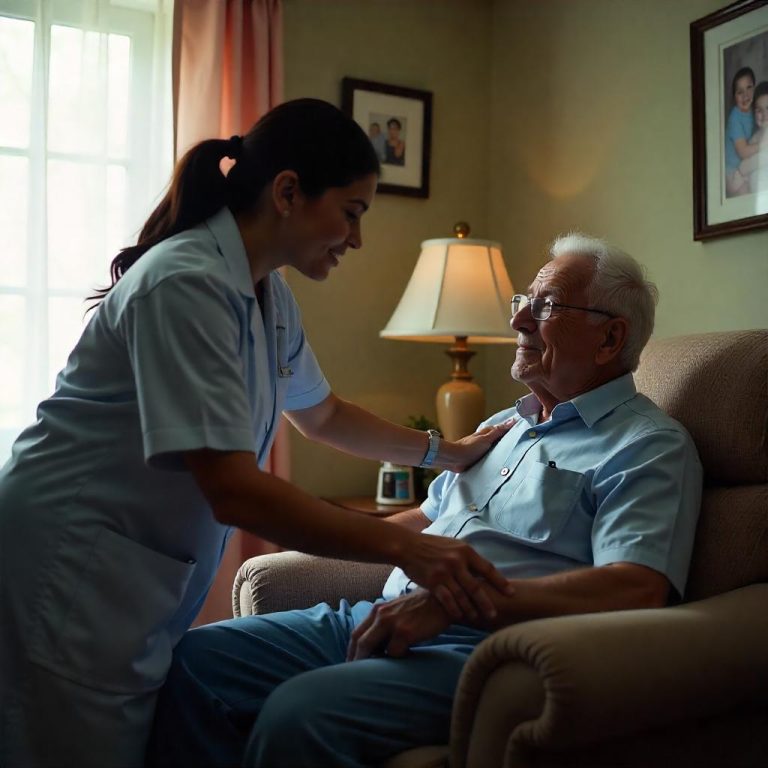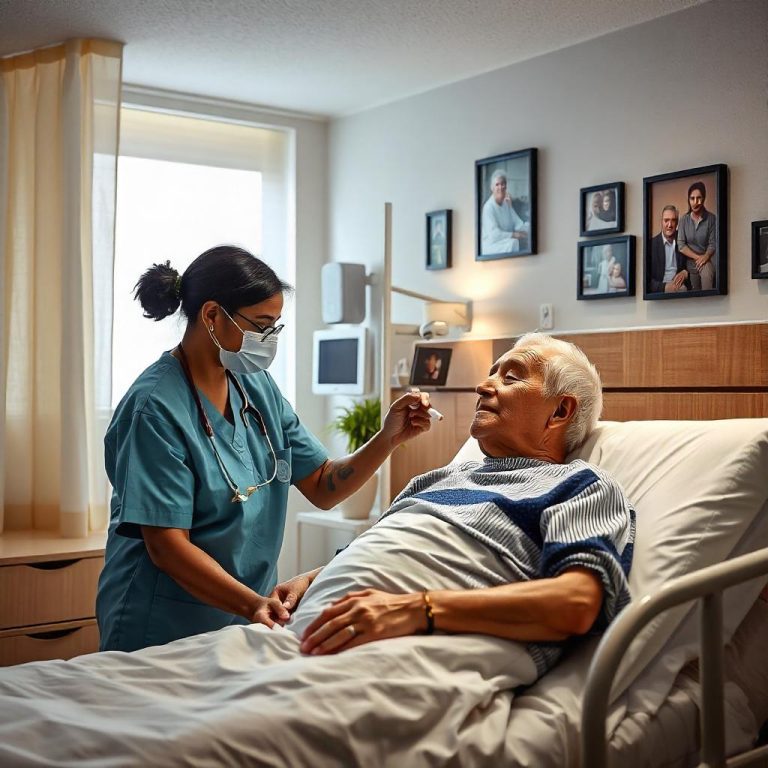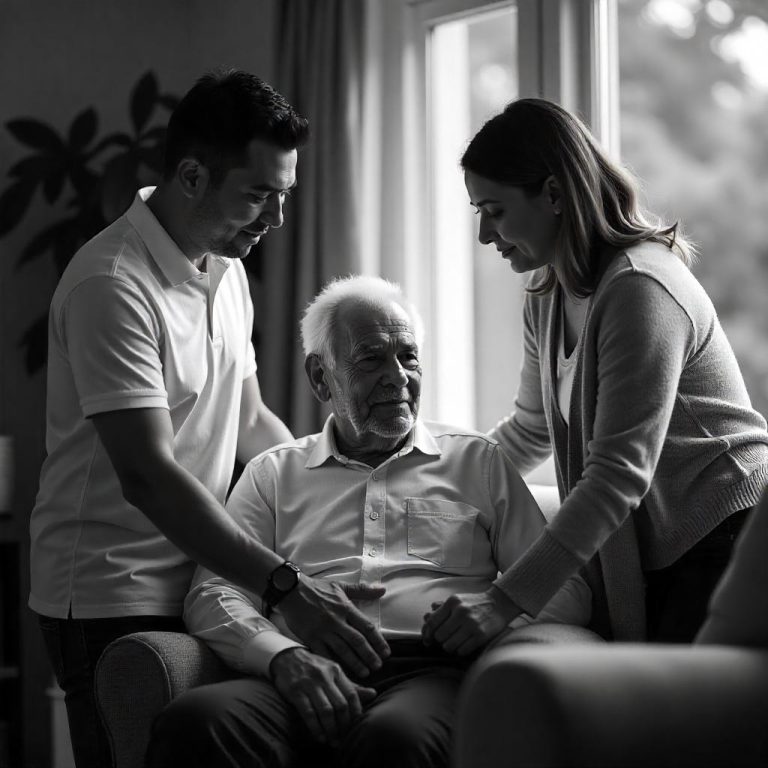Skilled home health aides play a crucial role in providing medical and personal care to individuals who are recovering from illness, managing chronic conditions, or facing the challenges of aging. These healthcare professionals offer assistance in the comfort of a person’s home, allowing patients to receive the care they need while maintaining their independence and dignity. This type of home care service is an essential part of the healthcare system, particularly for individuals who require ongoing support but do not need to stay in a hospital or nursing home.
What are Skilled Home Health Aides?
Skilled home health aides are trained professionals who provide medical and personal care services to individuals in their homes. Unlike non-medical caregivers, skilled home health aides possess specific training in healthcare techniques and are often certified or licensed to perform tasks that require a higher level of expertise. They work under the supervision of a registered nurse or physician and may assist with medical tasks, physical therapy, and other specialized care needs.
Key Responsibilities of Skilled Home Health Aides
- Personal Care Assistance
- Description: Skilled home health aides assist with personal care tasks such as bathing, dressing, grooming, and toileting. This support ensures that individuals maintain their hygiene and dignity, especially if they have mobility issues or are unable to perform these tasks independently.
- Importance: Personal care assistance is essential for individuals with physical disabilities, those recovering from surgery, or individuals with chronic conditions that affect mobility or cognitive abilities.
- Medication Management
- Description: Skilled home health aides may assist with medication management by ensuring that patients take their prescribed medications on time and in the correct dosage. They may also monitor for side effects and report any issues to the supervising nurse or physician.
- Importance: Proper medication management is critical for patients managing chronic conditions or recovering from illness. Incorrect medication administration can lead to complications, so skilled aides help prevent medication errors.
- Wound Care and Dressing
- Description: Skilled aides are trained to manage minor wound care and dressing changes, particularly for individuals who are recovering from surgery, accidents, or injuries. They may also assist with monitoring for signs of infection and ensuring that wounds heal properly.
- Importance: Proper wound care prevents infections, accelerates healing, and reduces complications. A skilled aide can ensure that wounds are treated correctly in a home setting, reducing the need for hospital visits.
- Monitoring Vital Signs
- Description: Skilled home health aides can monitor a patient’s vital signs, such as blood pressure, heart rate, temperature, and respiratory rate. They are trained to identify abnormalities and report changes to healthcare providers for further evaluation.
- Importance: Regular monitoring of vital signs allows for early detection of potential health issues, especially for individuals with chronic conditions like hypertension, diabetes, or heart disease.
- Assisting with Physical Therapy
- Description: For patients recovering from surgery, injury, or illness, skilled home health aides may assist with physical therapy exercises as prescribed by a physician or physical therapist. They help ensure that exercises are performed correctly and safely.
- Importance: Physical therapy is crucial for rehabilitation, recovery, and improving mobility. Skilled aides ensure that exercises are done correctly, preventing injury and promoting faster recovery.
- Nutritional Support and Meal Preparation
- Description: Skilled home health aides may assist with meal preparation, ensuring that patients follow special diets prescribed by their healthcare provider. They may help with feeding if the patient has difficulty eating independently.
- Importance: Proper nutrition is essential for recovery, managing chronic conditions, and maintaining overall health. A skilled aide can help ensure that the patient receives the right nutrients in the correct amounts.
- Companionship and Emotional Support
- Description: In addition to physical care, skilled home health aides provide companionship and emotional support. They offer a comforting presence, engage in conversation, and help reduce feelings of isolation or loneliness, especially for seniors.
- Importance: Emotional well-being is an integral part of overall health. Companionship helps boost mood, reduces anxiety, and enhances the quality of life for individuals who may be dealing with chronic illness or aging-related challenges.
- Assistance with Mobility
- Description: Skilled aides assist with mobility, helping patients move from one place to another, such as getting out of bed, walking, or transferring from a wheelchair. They may also help patients with exercises designed to improve strength and balance.
- Importance: Maintaining mobility is essential for independence and quality of life. Skilled aides ensure that patients move safely, reducing the risk of falls and injuries.
- Post-Surgical Care
- Description: After surgery, patients often need extra care to ensure a smooth recovery. Skilled home health aides assist with monitoring surgical sites, providing pain management support, and ensuring that the patient follows post-operative instructions.
- Importance: Proper post-surgical care reduces the risk of complications, aids in faster recovery, and ensures that patients are comfortable and safe during the healing process.
When are Skilled Home Health Aides Needed?
Skilled home health aides are often recommended for individuals who require medical care but do not need the constant supervision of a hospital or nursing home. Common situations where skilled home health aides are needed include:
- Post-surgical recovery: After surgery, individuals often need assistance with daily activities and medical care while they heal.
- Chronic illness management: Individuals with chronic conditions like diabetes, heart disease, or COPD may require regular care to manage symptoms and prevent complications.
- Elderly care: Older adults may need help with activities of daily living (ADLs), including personal care, mobility assistance, and medication management.
- Injury recovery: People recovering from accidents, strokes, or severe injuries often need skilled care to regain strength and mobility.
- Terminal or hospice care: Skilled aides provide compassionate care for individuals nearing the end of life, ensuring comfort and dignity during their final days.
Benefits of Skilled Home Health Aides
- Personalized Care
- Skilled home health aides offer individualized care plans tailored to the patient’s specific needs, preferences, and medical requirements. This level of customization ensures that each patient receives the most appropriate care.
- Comfort and Independence
- Receiving care at home allows patients to remain in a familiar and comfortable environment, which can aid in their emotional well-being. It also enables individuals to maintain a higher level of independence than they would in a facility setting.
- Reduced Hospital Readmissions
- Skilled home health aides help manage medical conditions, monitor vital signs, and ensure that patients follow their treatment plans, reducing the risk of complications and preventing unnecessary hospital readmissions.
- Cost-Effective
- In many cases, home health care is more affordable than extended hospital or nursing home stays. Skilled aides provide high-quality care in the home, which can be a more budget-friendly option for long-term care.
- Holistic Support
- Skilled home health aides not only address physical care needs but also provide emotional support, companionship, and assistance with daily living activities. This holistic approach promotes overall health and well-being.
- Enhanced Family Support
- Skilled aides provide peace of mind to family members by ensuring that their loved one is receiving professional care at home. This allows families to focus on spending quality time together rather than handling complex medical tasks.






